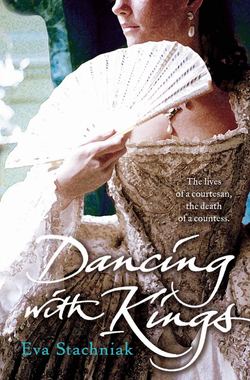Читать книгу Dancing with Kings - Eva Stachniak - Страница 22
Rosalia
ОглавлениеShe was born in exile, her father always said. Better than born in chains, for 1796, the year of her birth, was the first year there was no Poland on the map of Europe.
‘You saved your father’s life,’ her mother said. ‘Before you were born he spoke of nothing but death.’
In her father’s study, there was an engraving of Poland led to her grave. Polonia was a young woman in white, her hands chained. The grave was a square hole in the ground, and three men, Russia, Prussia, and Austria, were already holding the stone lid that would intern her. ‘But not forever,’ her father always said.
In 1795, at Maciejowice, defeated by the Russians in the last battle of the Insurrection, Tadeusz Kościuszko, thinking himself dying, said: ‘Finis Poloniae.’
‘This is what we all feared then, Rosalia,’ her father continued. ‘But we were wrong.’ The soldiers in Napoleon’s Polish Legion had a reply to these words spoken in that black hour of defeat:
Jeszcze Polska nie umarmŁa póki my żyjemy
Co nam obca moc wydarŁma szabl odbierzemy
Poland is not dead as long as we are alive
What the foreign powers took away from us we
shall regain by the sword
It was Napoleon Bonaparte, a man of iron will and a god of war, who had taught the Poles how to win. A god of war who had gathered the defeated Polish soldiers under his wing and gave them the chance to fight the enemies of their country. Bonaparte who would soon smash the might of the Russians and lead Poland out of her grave. Then there would be no more exile, no more rented rooms, no more packing and unpacking of trunks and crates. They would go back to Poland, to their manor house confiscated by the Russian Tsar because Jakub Romanowicz had refused to stop fighting for Poland’s freedom, had refused to live in slavery.
Rosalia loved when her father said that. She loved the way he smelled of snuff, the way his prickly cheeks chafed her lips.
‘Where is Poland now, Papa?’ she liked to ask, sitting down to a familiar ritual. Wherever they were – Paris, Rome, Livorno – his response was always the same. He would take her hand in his and place it on her chest.
‘Can you feel it?’ he would ask as her hand registered the rhythm of her heartbeat.
‘Yes,’ she would say, in her solemn, serious voice, waiting for what was coming.
‘This, Rosalia, is Poland.’
She believed him. She believed that Poland, this beautiful maiden entombed alive by Russia, Prussia and Austria would one day be resurrected. Like Jesus Christ, the Saviour, she would rise from the dead and lead the nations of Europe to a new world order. A just, wonderful world without wars, hatred and slaves. A world where it would not matter if you were a Pole, Jew, or a Cossack, a noble or a peasant, a merchant or a pauper for Poland, like a good mother would make room for them all.
‘I may not see it, Rosalia. You may not see it. But your children, or your children’s children will.’ Her father’s voice shimmered like pebbles in the stream. She imagined them, these faint generations yet unborn. Shadows waiting to come to being. Waiting for their time.
